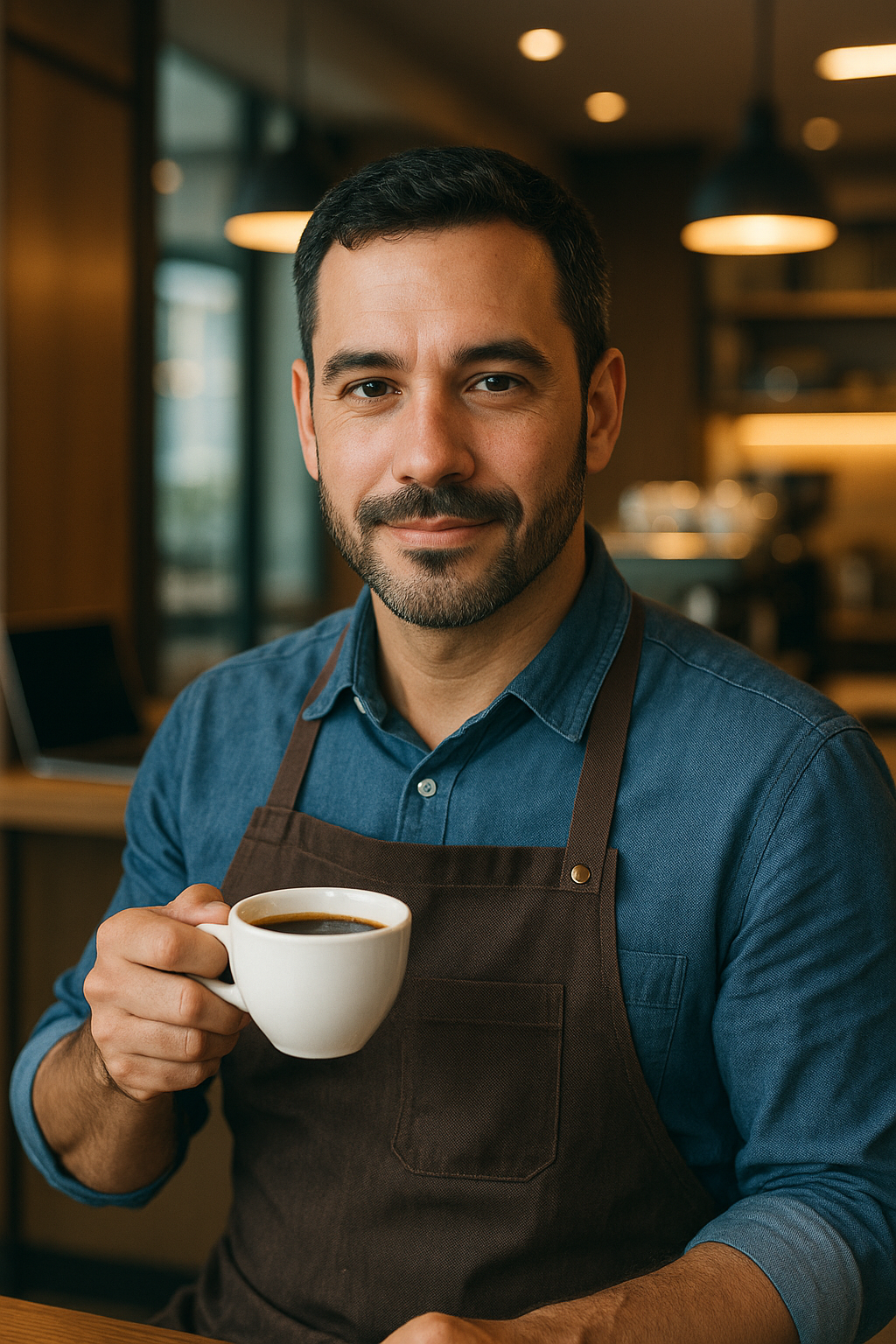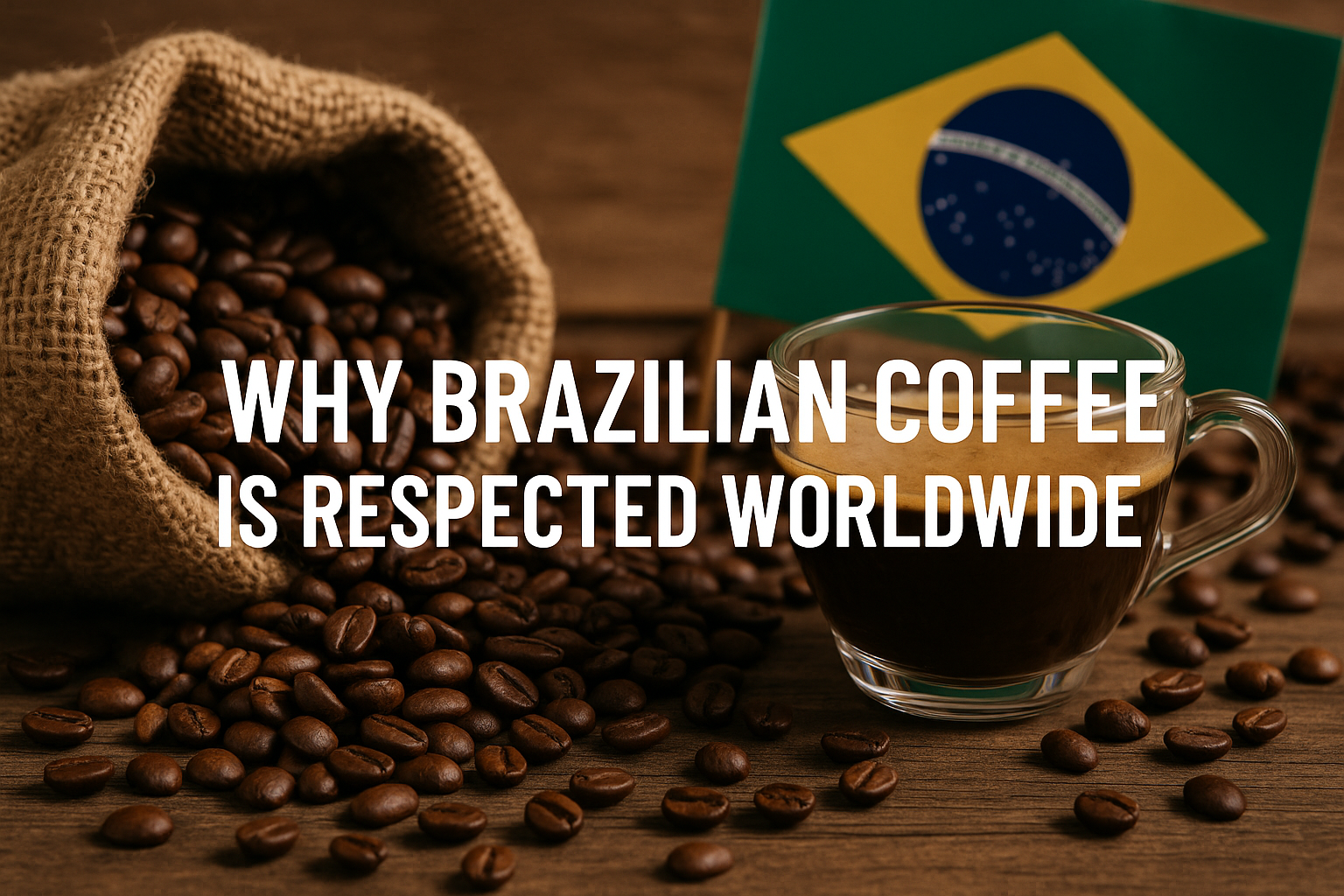When it comes to coffee, Brazil holds a unique and powerful position. As the world’s largest coffee producer for over 150 years, Brazil is more than just a major player in terms of quantity—it’s also widely respected for the quality, diversity, and consistency of its beans.
But what exactly makes Brazilian coffee so special? In this article, we’ll explore the historical, agricultural, and cultural reasons behind Brazil’s global coffee reputation.
A Legacy of Leadership: Brazil’s Coffee History
Brazil’s relationship with coffee began in the 18th century, when a Portuguese colonel allegedly smuggled coffee seeds into the country from French Guiana.
Thanks to Brazil’s vast land, favorable climate, and enslaved labor force at the time, coffee plantations quickly spread across the southeast of the country.
By the 1840s, Brazil had overtaken other countries to become the largest coffee exporter in the world, a title it still holds today. Coffee fueled much of Brazil’s economic and infrastructure development, particularly in São Paulo and Rio de Janeiro.
In fact, the phrase “café com leite” (coffee with milk) was used to describe Brazil’s political alliance between coffee-producing São Paulo and dairy-producing Minas Gerais during the early 20th century.
Ideal Climate and Geography for Coffee
Brazil’s geographical diversity makes it ideal for large-scale coffee farming. Key coffee-growing regions include:
- Minas Gerais – The largest and most productive region, known for balanced, nutty, and sweet coffees.
- São Paulo (Mogiana region) – High altitudes and red clay soil produce smooth, full-bodied beans.
- Espírito Santo – Known for both Arabica and Robusta production, especially smaller farms.
- Bahia – A newer region using modern irrigation for high-quality Arabica beans.
- Paraná – Though impacted by frost in the past, still contributes significantly to overall output.
Brazil’s coffee farms typically range between 600 and 1,200 meters above sea level, which is lower than high-elevation specialty regions like Ethiopia or Colombia. However, this doesn’t mean lower quality. Thanks to well-established practices, advanced processing, and favorable microclimates, Brazil consistently produces top-tier beans.
Coffee Varieties Grown in Brazil
Brazil primarily grows Arabica coffee, which accounts for about 70-75% of its production. The rest is Robusta (Coffea canephora), used mainly in instant coffee and lower-cost blends.
Common Arabica varietals in Brazil include:
- Bourbon – Known for sweetness and balanced acidity.
- Catuai – A hybrid with high yield and good cup quality.
- Mundo Novo – A natural hybrid with good disease resistance.
- Icatú and Catucaí – Modern hybrids bred for sustainability.
These varietals offer a wide range of flavor notes, from chocolate and caramel to nuts and red fruit, making Brazilian beans incredibly versatile for blends, espresso, and single-origin coffees.
Processing Methods: Brazil’s Specialty
One of Brazil’s biggest contributions to the coffee world is its innovation in processing methods. With consistent sunshine and dry harvest seasons, Brazil is perfectly suited for natural (dry) processing, where coffee cherries are dried whole with the fruit still attached. This method:
- Enhances body and sweetness
- Produces chocolatey, nutty notes
- Reduces acidity
Brazil also pioneered pulped natural and semi-washed methods, which combine aspects of washed and natural processing for a balanced flavor.
These methods help define the Brazilian cup profile and make it a favorite base for espresso and blends, especially in Italy, the U.S., and Japan.
Consistency and Reliability in the Global Market
Beyond flavor and innovation, Brazil is respected globally for its consistency and reliability:
- Massive infrastructure: Efficient road networks, ports, and shipping systems support large-scale exports.
- Mechanized farming: While smaller farms hand-pick, many Brazilian farms use machines for harvesting, increasing speed and volume.
- Predictable harvests: The climate allows for steady yearly production, which supports international demand and long-term contracts.
Roasters around the world rely on Brazil to stabilize their blends and ensure product availability year-round. For many commercial roasters, Brazilian beans are the dependable “anchor” of their product lines.
Specialty Coffee and Brazilian Excellence
While Brazil is often associated with bulk production, it also excels in specialty coffee. The country is home to some of the most prestigious coffee competitions, such as:
- Cup of Excellence Brazil
- BSCA (Brazil Specialty Coffee Association) initiatives
- Regional micro-lot competitions
Winners of these contests often produce coffees that rival the best from Panama, Ethiopia, or Kenya, showcasing unique flavors like red berries, molasses, floral aromatics, and even wine-like complexity.
Sustainability and Innovation
As demand for ethically sourced coffee grows, Brazil is at the forefront of sustainable agriculture, thanks to:
- Soil regeneration and shade-tree planting
- Water conservation and reuse systems
- Organic and Rainforest Alliance-certified farms
- Investment in carbon-neutral practices
Many Brazilian farmers are also experimenting with new fermentation techniques, yeast-inoculated processing, and anaerobic fermentation to enhance complexity and flavor clarity.
Brazilian Coffee in Culture and Daily Life
In Brazil, coffee isn’t just an export product—it’s a way of life. The cafezinho, a small, sweet cup of black coffee, is a staple in homes, workplaces, and social gatherings. Offering someone coffee is a gesture of hospitality and warmth.
The Brazilian coffee culture values simplicity and frequency. People often drink 4–5 small cups a day, enjoying the ritual as much as the drink itself.
Final Brew: Brazil’s Lasting Coffee Legacy
From sheer volume to innovation and specialty excellence, Brazil has earned its place as one of the most respected coffee-producing countries in the world. Its impact is felt in nearly every blend, roast, and café around the globe.
Whether you’re drinking a simple espresso, a fruity pour-over, or a rich, full-bodied brew, chances are Brazilian coffee is in your cup—and for good reason.

Marcelo Oliveira is a coffee enthusiast and content creator specializing in barista skills, brewing methods, equipment reviews, coffee-related health insights, and fascinating curiosities from the coffee world. With a deep passion for every step of the brewing process, he turns technical knowledge into accessible and engaging content for both beginners and seasoned coffee lovers. Marcelo’s goal is to help readers appreciate the full experience of coffee—from bean to cup.
